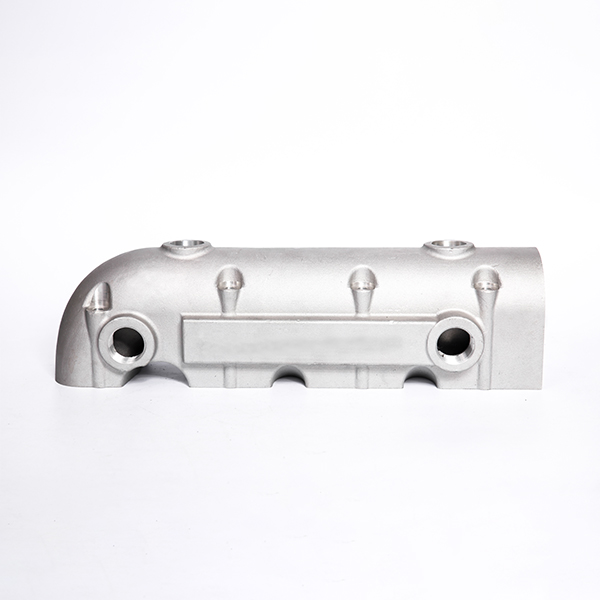Mobile:+86-311-808-126-83
Email:info@ydcastings.com
Understanding the Role of Water Pumps in Vehicle Performance and Efficiency
The Role of Water Pumps in Automotive Systems
Water pumps play a crucial role in the efficient functioning of automotive systems. They are primarily responsible for circulating coolant through the engine and radiator, ensuring optimal operating temperatures. Understanding the significance of water pumps in vehicles not only sheds light on their mechanical importance but also highlights the role they play in vehicle performance, longevity, and environmental impact.
How Water Pumps Work
In any combustion engine vehicle, the water pump is pivotal in keeping the engine cool. It works by drawing coolant from the radiator and pushing it into the engine block. As the engine operates, it generates heat, which can lead to overheating if not managed properly. The water pump ensures that this heated coolant is then circulated back to the radiator, where it is cooled down before being recirculated into the engine. Most modern vehicles utilize a belt-driven water pump which is powered by the engine's accessory belt system.
The typical design of a water pump incorporates an impeller that spins rapidly to create pressure and facilitate coolant flow. Ideally located near the front of the engine, the pump is designed to maintain a steady flow of coolant, preventing hot spots and ensuring that temperature variations within the engine remain within safe limits.
Importance of Water Pumps
1. Preventing Overheating One of the most critical functions of a water pump is to prevent engine overheating. Overheating can lead to severe engine damage, including warped cylinder heads or blown gaskets. Regular maintenance and timely replacement of water pumps are vital for avoiding costly repairs.
2. Improving Engine Efficiency A well-functioning water pump ensures that the engine operates efficiently. When the engine remains at its optimal temperature, it runs more effectively, resulting in improved fuel efficiency.
3. Extending Engine Life Continuous overheating can diminish the lifespan of an engine. By efficiently regulating engine temperature, water pumps contribute significantly to the longevity and reliability of vehicles.
water pump use in car

4. Environmental Impact Properly functioning cooling systems can also have a significant impact on a vehicle's environmental footprint. An efficiently running engine produces lower emissions, thus contributing positively to air quality.
Signs of Water Pump Failure
Recognizing the symptoms of a failing water pump is essential for vehicle maintenance. Common signs include
- Overheating Engine If the engine temperature gauge is consistently high, it may indicate a problem with the water pump. - Coolant Leaks Pools of coolant under the vehicle may suggest a leak from the water pump. - Whining Noise A high-pitched noise that increases with acceleration can indicate a worn-out water pump bearing. - Steam from the Engine Visible steam can mean that the engine is overheating and the coolant is not circulaing effectively.
Maintenance and Replacement
Regular maintenance checks can help ensure water pumps remain in good working condition. Vehicle owners should have their cooling systems inspected, particularly before long trips or seasonal changes. Most manufacturers recommend replacing the water pump every 60,000 to 100,000 miles, although this may vary based on the make and model of the vehicle.
During routine maintenance, mechanics often check the condition of the water pump along with other components of the cooling system, such as hoses, the radiator, and the thermostat.
Conclusion
In conclusion, the water pump is an integral component of automotive cooling systems that affects engine performance, longevity, and efficiency. Regular maintenance and awareness of the symptoms of potential failure can save vehicle owners from costly repairs and enhance the overall driving experience. Understanding the importance of water pumps not only equips vehicle owners with valuable knowledge but also encourages proactive measures for vehicle care and environmental responsibility. As automotive technology continues to evolve, the fundamental role of the water pump remains constant, ensuring that vehicles operate smoothly and efficiently.
-
Why Should You Invest in Superior Pump Castings for Your Equipment?NewsJun.09,2025
-
Unlock Performance Potential with Stainless Impellers and Aluminum End CapsNewsJun.09,2025
-
Revolutionize Your Machinery with Superior Cast Iron and Aluminum ComponentsNewsJun.09,2025
-
Revolutionize Fluid Dynamics with Premium Pump ComponentsNewsJun.09,2025
-
Optimizing Industrial Systems with Essential Valve ComponentsNewsJun.09,2025
-
Elevate Grid Efficiency with High-Precision Power CastingsNewsJun.09,2025











